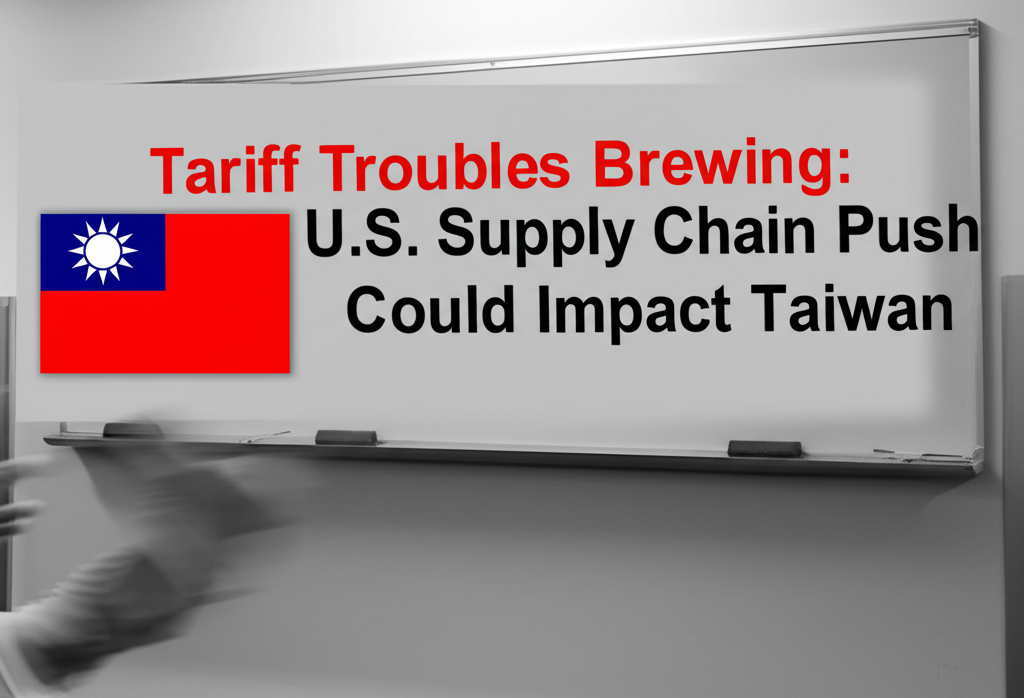Tariff Troubles Brewing: U.S. Supply Chain Push Could Impact Taiwan
Analyst Warns of Potential High Tariffs on Electronics and Semiconductors as the U.S. Reshapes Global Supply Chains

Taipei, April 14 – Taiwan, along with other Asian nations, is bracing for potential high tariffs from the United States on electronics and semiconductors. This move is part of Washington's strategy to incentivize Asian electronics manufacturers to invest in the U.S. market and build domestic supply chains, according to an analyst from Digitimes, a market research firm.
In a statement, Eric Huang (黃逸平), Vice President of Digitimes, highlighted that the U.S., in its bid to bolster its manufacturing sector, may employ tariff barriers to compel Asian countries, including Taiwan, to negotiate and relocate their electronics suppliers to the U.S.
The U.S. is targeting not only semiconductor manufacturers in Taiwan and other Asian countries but also the entire electronics supply chain, including crucial components like flat panels, Huang noted.
Beyond Taiwan, the U.S. is also focusing on other electronics hubs in Asia, such as Japan, South Korea, and nations in Southeast Asia, Huang added.
Taiwan needs to prepare for potential tariff threats from the U.S., Huang advised.
While the U.S. government recently announced exemptions from reciprocal tariffs on electronic imports, including computers, phones, and semiconductors, Commerce Secretary Howard Lutnick indicated that this exemption is "not permanent."
"We need to have semiconductors, we need to have chips, and we need to have flat panels -- we need to have these things made in America. We can't be reliant on Southeast Asia for all of the things that operate for us," Lutnick stated.
Furthermore, U.S. President Donald Trump stated on the Truth platform that his administration will investigate semiconductors and the entire electronics supply chain in an upcoming National Security Tariff Investigation, declaring, "we will not be held hostage by other countries, especially hostile trading nations like China."
Huang predicts that the global electronics market will be divided into three main segments: the U.S., China, and the market excluding both, due to pressure from Washington.
Amid the escalating trade tensions between Washington and Beijing, electronics suppliers are expected to relocate production to the U.S. or to other countries with lower tariffs, while China will focus on developing its own electronics for its domestic market, Huang explained.
Huang anticipates that as electronics manufacturers rush to invest in the U.S., they will also accelerate their investments in Mexico, taking advantage of the tariff-free benefits under the United States-Mexico-Canada Agreement (USMCA).
China, on the other hand, will continue to support tech suppliers producing within the domestic market, which faces export controls and high tariffs from the U.S. Therefore, any foreign firm seeking a share of the Chinese market will likely need to source components and assemble products there, he added.
China is projected to hasten its efforts to develop chips for artificial intelligence, electric vehicles, and high bandwidth memory, aiming to control its own supply chain and counter U.S. export restrictions by pursuing de-Americanization, he noted.
Conversely, the U.S. will endeavor to achieve de-Sinicization, Huang concluded.
